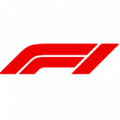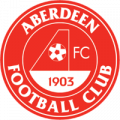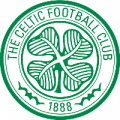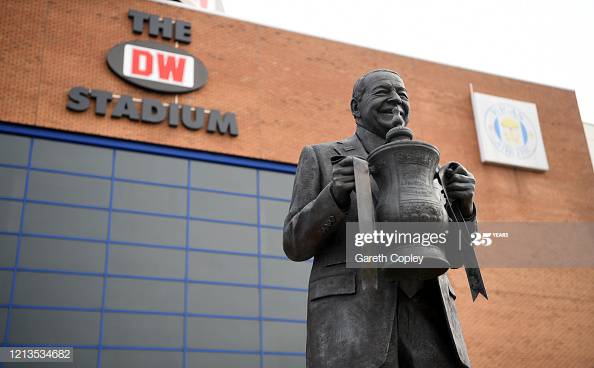Last Wednesday, as the players recovered from their 3-0 triumph at The Bet365, Wigan Athletic were plunged into turmoil.
Against a backdrop of shock and indignation, the club's administration was announced to the world, and only those who had been tracking the murky developments upstairs could have possibly foreseen it.
Paul Cook's men now face a 12-point deduction from their points total at the end of the season (should they avoid relegation), which adds immeasurable weight to their final five fixtures, particularly after the loss to Brentford at the weekend.
All the progress since January - the nine-match unbeaten run, the dogged wins away at Leeds United and West Bromwich Albion, the three consecutive post-lockdown victories - has been undone. The deduction leaves the Latics six points adrift of safety with just five games to go.
Cook has already guided his team out of the depths of the drop zone once this season, but this wound, at such a late stage, may well be fatal. In more ways than one.
An astonishing chain of events + EFL negligence
Although the next step is indeed liquidation, administration is not always a negative thing for a football club. It essentially means the club is being passed into safe hands, providing a safety net for the business.
The administrators will be tasked with raising the necessary funds to keep the club afloat, and will advertise the club's assets to potential owners. The money from the sale will then be reinvested into clearing debts and liabilities for the new owners.
Football's history is littered with cases like this. Few, however, have been steeped in such scandal and conspiracy.
In retracing this baffling chain of events, we must return to November 2018, when Dave Whelan finally relinquished his stewardship of Wigan after a glorious 23 years. Whelan assumed control of his local team in 1995 and oversaw a fairytale rise through the divisions, culminating in eight successive years in the Premier League and FA Cup glory in 2013.
Wigan were a well-run club and Whelan thought he was selling to creditable businessmen when the Hong Kong-based company IEC (International Entertainment Corporation) acquired the club for £16m in 2018. In time, his presumptions would be confounded.
The decision to sell was predicated on a belief that the longer the club resided in the Championship, the more money they would lose. IEC, listed on the Hong Kong stock exchange, seemed like a reputable business.
At first, there were no serious red flags surrounding the new ownership, apart from the fact that the chairman and majority shareholder, Dr Stanley Choi, was a professional poker player which, by most measures, isn't exactly the most stable or reputable of professions.
Choi, a first-time visitor to the unique realms of football, ran the club through Joe Royle (the former manager who's now a director at Wigan) and his son, Darren - also on the board. Early investments were sensible and progressive, including an upgrade to the academy facilities and some astute business in the summer transfer window.
For the most part, the club appeared settled. Nobody could have predicted that, on May 29, IEC would sell the club to another Hong Kong-based consortium, Next Leader Fund (NLF). Choi, at the time, was also the majority shareholder of NLF but, less than a month later, he was replaced by Wai Kay Au Yeung, a Chinese businessman who was initially a minority shareholder at NLF. That same day, June 24, Au Yeung withdrew funding from the club.
As revealed by The Athletic in their investigation, one Wigan fan wrote to the EFL, warning them that the 104-page sale document published on May 8 did not include evidence of future funding. Despite this, Au Yeung still managed to pass the Owners' and Directors' test and it is this negligence that is at the root of Wigan fans' anger towards the Football League's governing body.
Also concerning was the nature of the deal itself. Not only was a loss-making club sold on for a profit in the midst of a pandemic - which is suspicious on its own - but the deal also included a £24.4milliion loan (the amount IEC had invested into the club) at exorbitant rates of interest. The loan was repayable within 12 months.
That sort of debt was bound to cripple Wigan financially, something which, again, the Wigan supporter identified.
The impact of the chaos has been profound. Players are yet to be paid for the month of June and are also due three months of deferred wages, which is understood to be 30% of their salaries. Club staff (some of which are furloughed) are also waiting on belated payments from the club.
Gerald Krasner, one of three administrators, admitted there is no guarantee that the club will be able to fulfill its remaining fixtures due to the challenges of sourcing cash to meet the day-to-day costs of running the club.
"I'm not going to guarantee anything but I'm going to do the best that I can," Krasner told The Times before the Brentford game. "The money I have to raise now is to make sure the travelling expenses are paid for the match on Saturday. It's day-to-day items as well as wages."
Fans have raised over £100k and players have volunteered pay-cuts to help the club make ends meet. They're also demanding answers to a situation that, at present, is shrouded in mystery.
Theories and speculation
The more you look at what has unfolded at Wigan, the less it makes sense.
Firstly, why on earth would anyone buy a loss-making club in the midst of a pandemic for an overall price of £41million, almost tripling the fee it was sold for 18 months prior?
And, even if the financial situation really was dire, how can the club be then put into administration just four weeks later? Wigan, as owners of their stadium and training ground, have plenty of assets that could command relatively large fees, including the highly-sought after Joe Gelhardt and left-back Antonee Robinson, who attracted serious interest from AC Milan in January.
Surely, it would have made sense for Au Yeung to put £2-3million into the club to finish the campaign and then, if necessary, sell the assets in the summer to balance the books.
Rick Parry, the chairman of the EFL, was covertly filmed talking to a fan earlier this week and added fuel to allegations that Dr. Choi intended on placing the club into administration to satisfy a bet on Wigan's relegation.
"There are all sorts of rumours. There’s rumours that there is a bet in the Philippines on them being relegated because the previous owner has got gambling interest in the Philippines," Parry said. The clip was uploaded onto Twitter, and the EFL have since confirmed they are aware of the video.
It would be easy to dismiss the theory as hollow speculation, and yet - at a closer inspection - there does genuinely seem to be some substance behind the claims. The Next Leader Fund was, coincidentally, established in February 2020, around the time Wigan began to pick up form and stride towards safety, thus jeopardising Dr. Choi's supposed bet.
The fact that Dr. Choi sold the club at such a high price between his two companies and charged aggressive rates of interest provides further ammunition, as it would seem such a transaction has possibly been designed to burden Wigan financially, once again aiding his cause when it comes to the bet.
What, then, is Au Yeung's role in all of this?
There are theories, albeit fanciful ones, that Au Yeung doesn't even exist. After all, nobody at Wigan has ever met him in person and there are very few traces of the man on the internet. Is he merely a fictional frontman that has been created to conceal Choi's dirty work?
Admittedly, a more likely explanation for the sale of Wigan and the subsequent maelstrom is a lack of progress during IEC's time at the club, allied to the fact that a loss-making Championship club reflects very poorly on the stock exchange.
Over the coming weeks, the administrators will look to get to the bottom of the situation. The EFL will also launch their own separate investigation. It's unlikely, though, that this complex chain of events will ever be distilled into one simple narrative.







































